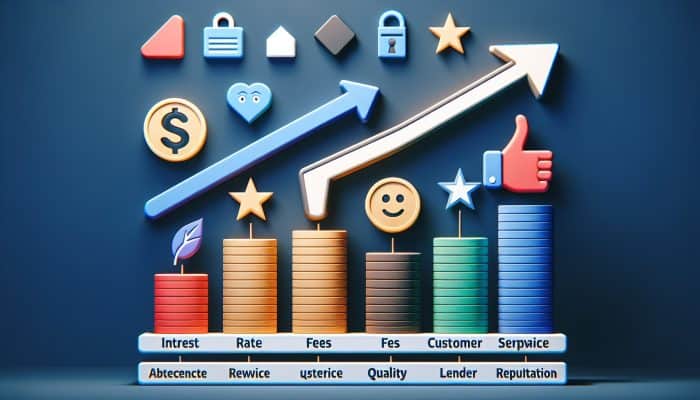Your Ultimate Resource for Effectively Managing Debt Consolidation Loans in the UK
Understanding the Purpose and Mechanics of Debt Consolidation Loans

A debt consolidation loan serves as a strategic financial tool for individuals aiming to merge multiple debts into a single, more manageable loan. This consolidation method often comes with a lower interest rate compared to the cumulative rates of the original debts, significantly simplifying the repayment process. By utilizing this approach, individuals can improve their overall financial management, ultimately regaining greater control over their financial circumstances. Typical debts that individuals often consolidate include:
- Credit card debt
- Personal loans
- Store card debt
- Medical bills
- Overdrafts
- Payday loans
- Student loans
By consolidating these various debts, borrowers can streamline their repayment process, reducing the stress associated with managing multiple payments and fostering improved financial stability over time.
Discover the Major Advantages of Debt Consolidation Loans
The primary advantage of debt consolidation loans is the simplification of financial management. Instead of juggling multiple payments with varying due dates and amounts, borrowers can focus their efforts on a single monthly payment. This streamlined strategy not only aids in budgeting but can also lead to significant savings over time, particularly if the new loan features a lower interest rate. Additionally, making consistent repayments on a consolidation loan can positively affect a borrower’s credit score, enhancing their payment history and reducing overall credit utilization, thereby promoting a healthier financial profile.
Steps to Successfully Qualify for a Debt Consolidation Loan
To secure a debt consolidation loan in the UK, lenders will assess several critical factors, including the borrower’s credit score, income levels, and debt-to-income ratio. Here are vital steps that can enhance your chances of gaining approval:
- Review your credit report for inaccuracies and dispute any errors you discover.
- Pay off smaller debts to improve your debt-to-income ratio, demonstrating your financial responsibility to potential lenders.
- Maintain a steady income to showcase your reliability to lenders.
- Consider backing the loan with collateral, especially if your credit rating is not optimal.
- Research various lenders who cater to a broad spectrum of credit histories and financial situations.
By implementing these proactive strategies, you can significantly increase your chances of obtaining loan approval, potentially leading to more favorable loan terms.
Expert Analysis of Debt Consolidation Loan Reviews and Insights

Insights from Financial Experts on Debt Consolidation
Financial experts consistently highlight that while debt consolidation loans can provide substantial financial relief, they may not be suitable for everyone. Many advisors recommend conducting a thorough evaluation of one’s financial situation before choosing to consolidate. For example, if a borrower consolidates £15,000 of credit card debt into a personal loan with a significantly lower interest rate, they could save thousands over the duration of the loan. However, experts caution against the belief that consolidation alone will rectify underlying financial habits, emphasizing the necessity of improving budgeting practices alongside consolidation for long-term financial health.
How to Effectively Analyze Debt Consolidation Loan Reviews
When examining reviews for debt consolidation loans, it is essential to evaluate the credibility of the source, the experiences shared by the reviewer, and how applicable those experiences are to your unique situation. Reviews penned by financial advisors or consumer advocacy organizations generally carry more weight than anecdotal accounts that may lack context. Common pitfalls in reviews include anecdotal evidence that may not accurately reflect the broader customer experience. Therefore, adopting a balanced perspective when reviewing feedback—considering both positive and negative aspects—is crucial for making well-informed decisions that align with your financial goals.
Critical Factors to Assess in Loan Ratings

Loan ratings assess several key components that significantly influence a borrower’s decision-making process. Important elements include interest rates, fees, quality of customer service, and the overall reputation of the lender. To effectively compare ratings, potential borrowers should:
- Look for reviews that specifically address loan terms and conditions.
- Compare interest rates from various lenders to identify the most competitive options.
- Evaluate customer service ratings, as responsive support can be crucial throughout the repayment process.
- Investigate any hidden fees or charges that could affect the overall cost of the loan.
By understanding these factors, borrowers can make informed comparisons, guiding them towards the most suitable lenders and loan options tailored to their specific financial needs.
Leveraging Expert Insights for Better Debt Consolidation Choices
Expert insights can play a critical role in evaluating the pros and cons of debt consolidation options. By utilizing professional advice, individuals can obtain clarity on whether consolidation aligns with their financial aspirations. For instance, experts may recommend specific lenders based on a borrower’s unique credit profile or suggest alternative strategies if they believe consolidation may not be in the borrower’s best interest. Furthermore, understanding the broader implications of debt consolidation, such as its potential impact on credit scores and future borrowing capacity, can empower individuals to make informed decisions tailored to their specific financial situations.
Comprehensive Overview of Debt Consolidation Loans in the UK
Step-by-Step Guide to Applying for a Debt Consolidation Loan
Applying for a debt consolidation loan involves several essential steps aimed at adequately preparing the borrower. The first step is to assess your current debts and determine the total amount owed. Once you have a clear understanding of your financial landscape, the next step is to identify a lender that offers competitive rates. The application process generally requires the following documentation:
- Proof of identity (e.g., passport, driving license)
- Proof of address (e.g., utility bills, bank statements)
- Income verification (e.g., payslips, tax returns)
- Details of existing debts (e.g., statements from creditors)
Completing the application meticulously can significantly enhance the likelihood of securing loan approval.
What to Expect After Your Loan Approval
Upon receiving approval for your debt consolidation loan, the subsequent steps involve utilizing the loan amount to settle your existing debts. This process often occurs directly, with the lender transferring funds to your previous creditors. Following this disbursement, you will begin repaying the new loan according to the agreed terms. It is crucial to adhere to the repayment schedule diligently; missed payments can have serious consequences, including damaging your credit profile. Regularly reviewing your repayment strategy is essential to ensure that you stay on track and meet your financial obligations.
Exploring Various Repayment Options for Debt Consolidation Loans
Repayment options for debt consolidation loans can vary significantly based on the lender’s policies. Common repayment structures include fixed monthly payments, which provide predictability, and variable rates that may change over time. Some lenders also offer the flexibility of early repayment without penalties, giving borrowers greater control over managing their loans. Understanding these repayment options is vital, as they significantly impact the loan’s manageability throughout its term. Before selecting a loan, consider which repayment structure aligns best with your financial habits and long-term objectives to ensure a sustainable repayment plan.
Identifying Potential Risks Associated with Debt Consolidation Loans
Does Debt Consolidation Lead to Higher Debt Levels?
While debt consolidation loans can provide immediate financial relief, they may also result in the accumulation of additional debt if not managed wisely. Borrowers might be tempted to use credit cards that were previously paid off, leading to a situation where they are burdened with both the new loan and additional debts. This highlights the importance of responsible financial practices, such as diligent budgeting and refraining from unnecessary credit usage after consolidation. Being aware of this risk can empower individuals to maintain discipline and commitment to their long-term financial well-being.
What Are the Possible Drawbacks of Consolidation?
Potential disadvantages of debt consolidation loans include the risk of incurring higher overall costs if the interest rate on the new loan does not provide a significant reduction compared to previous debts. Additionally, if borrowers fail to make timely payments on the consolidation loan, it can negatively affect their credit score, undermining the intended benefits of consolidation. Understanding these risks is crucial; borrowers must ensure they fully comprehend the terms of their new loan and remain vigilant regarding repayment schedules to effectively mitigate these potential downsides.
How to Avoid Common Mistakes with Debt Consolidation Loans
To avoid common pitfalls associated with debt consolidation loans, it is essential to carefully review all loan terms before committing. This includes understanding the interest rate, associated fees, and any potential penalties for missed payments or early repayments. Borrowers should also conduct thorough research on potential lenders to verify their reputability and ensure they provide clear, transparent terms. Engaging in financial education and seeking advice from professionals can further empower individuals to make informed decisions that lead to meaningful financial improvement and stability.
What Are the Consequences of Defaulting on a Consolidation Loan?
Defaulting on a consolidation loan can result in severe repercussions. This may drastically damage your credit score, making it increasingly challenging to secure credit in the future. Additionally, lenders might initiate legal actions to recover the owed amount, which could involve pursuing wage garnishment or seizing assets. To mitigate these risks, borrowers should prioritize making timely repayments and proactively communicate with their lenders if they face financial difficulties, as many lenders offer assistance or alternative arrangements for borrowers experiencing hardships.
Evidence-Based Advantages of Debt Consolidation Loan Reviews and Ratings
How Reviews Can Guide You in Choosing the Right Loan
Reviews provide invaluable insights into the experiences of other borrowers, assisting prospective clients in evaluating lender reliability and overall customer satisfaction. For instance, a borrower may discover that a lender known for exceptional customer service can significantly enhance the repayment experience. Real-world examples show that borrowers who diligently researched reviews prior to committing often reported higher satisfaction levels and fewer issues post-loan. Therefore, leveraging these insights can facilitate more informed choices and contribute to a smoother debt consolidation journey.
What Do Ratings Indicate About Loan Quality?
Ratings serve as a quick reference for understanding essential aspects of a debt consolidation loan, including interest rates and fees. A high rating may indicate a competitive offering, while a low rating could suggest potential issues or hidden costs. Expert analyses recommend that borrowers should not rely solely on ratings, but rather consider them alongside comprehensive research and their personal circumstances. By thoughtfully interpreting these ratings, individuals can make more informed decisions that align with their financial objectives and needs.
How to Effectively Utilize Reviews and Ratings
To leverage reviews and ratings effectively in your decision-making process, focus on recent feedback, as this is more likely to reflect the current service standards of lenders. Look for patterns in comments, such as recurring strengths or weaknesses highlighted by multiple reviewers, as these can provide deeper insights. Additionally, consult multiple sources for a well-rounded overview, including consumer review platforms, financial blogs, and online forums. This multifaceted approach ensures you are well-informed and empowered to choose the best lender for your unique needs.
What Are the Limitations of Reviews and Ratings?
While reviews and ratings can provide valuable guidance, they inherently possess limitations. They may not accurately reflect your specific situation, as individual experiences can vary significantly. Biases—whether positive or negative—can distort perceptions, and often, reviews may become outdated over time. Therefore, it is essential to complement reviews with your own thorough research and financial analysis to arrive at informed conclusions regarding potential loans. Understanding these limitations can help you navigate the debt consolidation landscape more effectively and judiciously.
How Do Research-Driven Benefits Influence Loan Decisions?
Research-driven benefits present evidence-based insights into the advantages of debt consolidation loans, empowering borrowers to make informed decisions. For example, studies indicating that borrowers who consolidate their debts typically save money on interest payments can guide individuals towards favorable outcomes. Consequently, understanding these research-backed benefits allows individuals to recognize the potential positive impacts of consolidation, motivating them to engage in the process with confidence and clarity, ultimately leading to a healthier financial future.
Strategic Techniques for Evaluating Debt Consolidation Loan Reviews and Ratings
How to Identify the Most Suitable Debt Consolidation Loans in the UK
Finding the best debt consolidation loans in the UK requires a strategic approach to comparing different options. Begin by evaluating interest rates from various lenders and assessing the overall fees associated with each loan. Ensure you understand the lender’s reputation by examining customer reviews and checking their standing with regulatory bodies. Furthermore, consider utilizing online comparison tools that simplify this process and provide side-by-side evaluations of loan offers. This comprehensive research will help you find a loan that aligns well with your financial situation and goals.
Best Practices for Reading Reviews
Best practices for reading reviews involve seeking a diverse mix of feedback from various sources to gain a well-rounded perspective. Focus on detailed reviews that provide context regarding the reviewer’s financial circumstances and the specifics of their loan, as this can help you relate their experiences to your own. Exercise caution when evaluating overly positive or excessively negative reviews, as they may not accurately represent the average customer experience. By critically assessing reviews, you can enhance your understanding of potential lenders and their offerings, leading to more informed decisions.
Making Informed Decisions Based on Ratings
To reach an informed decision based on ratings, first, understand what those ratings specifically evaluate, such as interest rates, fees, and borrower feedback. Familiarize yourself with how ratings are calculated and consider their implications for your financial situation. It may also be beneficial to cross-reference ratings with specific customer reviews to gain deeper insights into the lender’s performance in real-world scenarios. By connecting ratings with comprehensive research, you can derive meaningful insights that facilitate better decision-making regarding debt consolidation loans.
Evaluating Lender Credibility and Security
Assessing lender credibility involves examining their regulatory status, customer service ratings, and security measures to protect personal financial information. In the UK, reputable lenders should be authorized and regulated by the <a href="https://limitsofstrategy.com/personal-loans-consolidation-a-smart-financial-strategy/">Financial Conduct Authority</a> (FCA). Additionally, review customer feedback regarding their experiences with lender transparency and support. Ensuring that a lender prioritizes data security and has a strong reputation can significantly enhance your comfort level and confidence when proceeding with a debt consolidation loan.
The Impact of Customer Testimonials on Decision Making
Customer testimonials provide valuable insights into real-life experiences with lenders and can significantly influence decision-making processes. Positive testimonials can highlight a lender’s reliability and high customer satisfaction, while negative feedback may uncover potential pitfalls to consider. Testimonials often reflect the consistency of service, which is crucial for borrowers navigating their repayment journeys. Therefore, considering these testimonials alongside reviews and ratings can help create a comprehensive picture of how a lender operates and whether they are the right fit for your debt consolidation needs.
Frequently Asked Questions About Debt Consolidation Loans
What Exactly Is a Debt Consolidation Loan?
A debt consolidation loan combines multiple debts into a single loan, typically offering a lower interest rate, thereby simplifying repayment and overall financial management.
Who Qualifies for a Debt Consolidation Loan?
Eligibility usually depends on your credit score, income, and debt-to-income ratio, which lenders use to assess your suitability for the loan.
Are Debt Consolidation Loans a Wise Financial Option?
They can be advantageous for streamlining payments and lowering interest rates; however, they require responsible financial habits to avoid accruing new debts.
What Should I Look for When Choosing a Lender?
Seek lenders that offer competitive interest rates, excellent customer service ratings, and clear, transparent terms. Verify their regulatory status for added credibility.
Is It Possible to Get a Debt Consolidation Loan with Poor Credit?
Yes, some lenders specialize in loans for individuals with poor credit; however, be prepared for higher interest rates and less favorable terms.
How Long Does It Usually Take to Get Approved?
Approval times vary by lender, but many loans can be approved within a few days, depending on the completeness of your application and documentation.
What Fees Should I Expect with Debt Consolidation Loans?
Fees may include origination charges, late payment penalties, and early repayment fees. Always scrutinize the loan terms for any hidden costs.
Can I Still Use Credit Cards After Consolidating My Debt?
While it is possible, responsible financial practice generally advises against using credit cards after consolidation to prevent accruing additional debt.
What Are the Consequences of Missing a Payment?
Missing payments can lead to late fees, increased interest rates, and potential damage to your credit score, making it crucial to stay on top of repayments.
Is Debt Consolidation Similar to Bankruptcy?
No, debt consolidation is a method for managing debt, while bankruptcy is a legal process that can result in asset loss and long-term negative credit implications.
Connect with Us on Facebook!
This Article Was First Found On: https://www.debtconsolidationloans.co.uk
The Article Debt Consolidation Loan Reviews: A Guide for the UK Was Found On https://limitsofstrategy.com
The Article Debt Consolidation Loan Insights: Your UK Guide First Appeared ON
: https://ad4sc.com



No responses yet